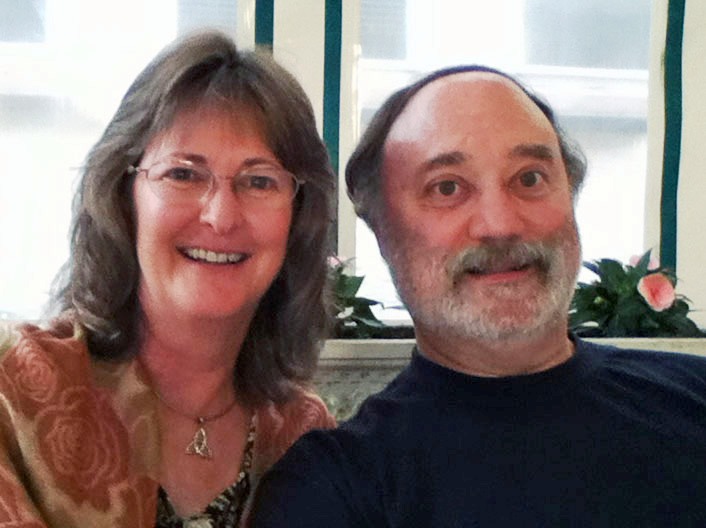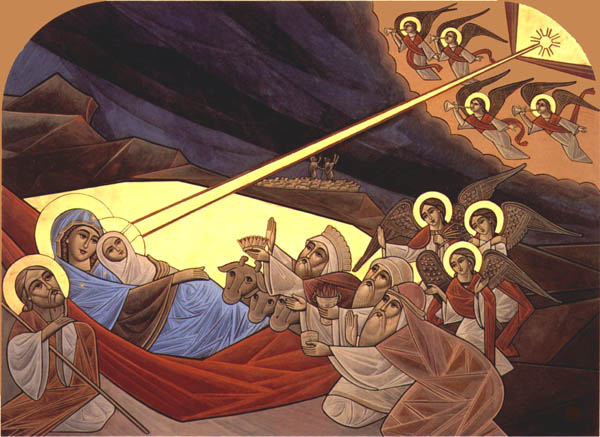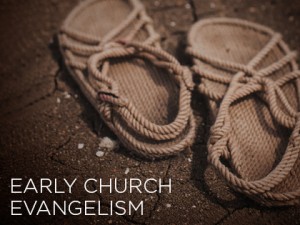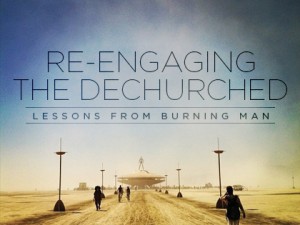Dear Brothers and Sisters,
 A friend of mine was telling me about the first time he and his wife saw their new home. Viewing it online, they realized it was empty, so they decided to drive by for a closer look. To their chagrin, they could only peek inside—the windows were partially blocked by curtains and blinds. It wasn’t until a realtor let them inside that they got the full picture. Some of what they found was what they expected, but some was not what they expected at all. Their experience reminds me of the struggle we Christians, given our finite minds, often have understanding (“seeing”) such profound concepts as infinity, eternity and time. Trying to understand is like trying to see every nook and cranny of the inside of a house by looking through the front door keyhole. There is much to see, but the view is obstructed. Though we seek to understand, it’s a struggle—a collision of the finite with the infinite.
A friend of mine was telling me about the first time he and his wife saw their new home. Viewing it online, they realized it was empty, so they decided to drive by for a closer look. To their chagrin, they could only peek inside—the windows were partially blocked by curtains and blinds. It wasn’t until a realtor let them inside that they got the full picture. Some of what they found was what they expected, but some was not what they expected at all. Their experience reminds me of the struggle we Christians, given our finite minds, often have understanding (“seeing”) such profound concepts as infinity, eternity and time. Trying to understand is like trying to see every nook and cranny of the inside of a house by looking through the front door keyhole. There is much to see, but the view is obstructed. Though we seek to understand, it’s a struggle—a collision of the finite with the infinite.
Barth on God, time and the Incarnation
As we read about these concepts, though we recognize the words, we’re not always sure what we’ve just read. A number of you have told me this has been your experience in reading theologian Karl Barth (I relate!). At times when reading Barth’s Church Dogmatics I’ve written more than a page of notes on a couple of his paragraphs, nevertheless, I wonder if I’ve understood what he wrote. It certainly takes work and patience to grasp Barth, but I find it well worth the effort—it’s like digging through rock in search of gold. Sometimes you come across amazing nuggets without realizing what you’ve found. But then you have that “aha moment”—it’s like someone has turned on the lights in a dark tunnel and you’re now able to see the gold right there in your hand.

One of the nuggets in Barth’s writing is his teaching that the Incarnation is the proper starting point for all true doctrine. Since the pre-incarnate Son of God is the Old Testament’s Creator and Lord, and the incarnate Son of God (Jesus) is the New Testament’s Savior, it makes sense that everything truly does begin and end with Jesus Christ—he is the “Alpha and Omega” (Revelation 22:13). Along those lines, Barth wrote this:
Whenever Holy Scripture speaks of God as eternal, it stresses his freedom. It takes him emphatically out of the realm of man and men, away from all history and all nature. It sets him at the beginning and end of all being and on high above it and unfathomably beneath it. (Church Dogmatics, vol. II.1, page 609)
This statement takes some pondering to mine the gold it contains, so let’s ponder together. Barth is linking God’s eternality with his freedom, making the point that for God to be truly God, he must be truly free—he must not be dependent on anything, and that includes time itself. This makes sense, for were God constrained by time, he would have to do things, allow things, or orchestrate things within a particular period or epoch of time. Were that the case, God would not be truly God—he would cease, for example, to be omnipotent. Barth is helping us understand that time cannot be God’s equal, nor a constraint upon him, nor a boundary that hems him in.
The idea of God being constrained by time arises not from Scripture but from paganism, including the Greek mythology concerning Kronos, who is one of the pantheon of gods known as the Titans. This myth does not align with the biblical revelation that God, who is eternal, created everything and there isn’t anything that exists that he did not create, time included. The Bible reveals that time has no power over God—there is nothing that has power over him, nor can anything exist prior to him. There cannot be anything that exists eternally with the same freedom including time itself. Either God has divine freedom and is the creator of time, or God is subservient to it and therefore not truly God. By definition, God is self-existent—as theologians say, he has aseity. God is wholly other—dependent on nothing, existing himself, before he created time. God exists in divine timelessness. Or, we can say, he has his own kind of time—time that is uncreated and eternal. The uncreated Father has and makes time for the uncreated Son (eternally!), and the Son has and makes time (eternally!) for the Father, all in the Holy Spirit. Now that’s a nugget that takes time to ponder!
The Incarnation in relation to time

With that thought in mind, let’s consider now the Incarnation in relation to time. The apostle Paul wrote this: “When the fullness of time had come, God sent forth his Son, born of woman, born under the law” (Galatians 4:4 ESV). In the phrase, “When the fullness of time had come,” Paul says more than we may have noticed. This phrase does not mean that God was waiting around for a specific moment in time to act. Barth helps us understand by noting that eternity is something constant (immutable) while time is transient (mutable). Time was created and flows forward and is changing—moving from the present into the past in anticipation of the future. God, who inhabits eternity, is not subject to change like that. Nevertheless, in the fullness of time, eternity entered time.
The apostle John made a similar point in writing this: “The Word became flesh and made his dwelling among us. We have seen his glory, the glory of the one and only Son, who came from the Father, full of grace and truth” (John 1:14). This profound statement tells us that God has revealed himself within time and space without ceasing to be eternal. God, who inhabits eternity, takes time into himself and, in his incarnate Son, Jesus Christ, takes on temporality. Just as the Incarnation means divinity has taken on humanity, it means that eternity subsumes time—it includes within it temporal time. In Jesus, God has made time for us, taken time for us. God has redeemed our time by graciously bringing it into fellowship and communion with his own time—his eternity.
Barth argued that neither time or eternity can be understood independently from the Incarnation. This reality fits hand-in-glove with the paradox of Jesus being both fully human and fully divine. Leaning too far in either direction leads to the heretical errors of Ebionitism (which diminishes Jesus’ divinity) and Docetism (which diminishes Jesus’ humanity). God is both temporal and eternal—temporal because eternity has subsumed temporality, and eternal because time has no power over him. There is a huge deposit of gold to ponder here!
The Incarnation reveals that, by grace, eternity includes time and does not exclude it. In the person of Jesus, the eternal entered time without ceasing to be eternal, raising us temporal beings through Jesus to participation in God’s eternity. In other words, Jesus’ coming in the flesh changes time for all time. We are in Christ and he is in the Father, and the Father is in him, and we are included in their eternity. Note Paul’s words:
Because of his great love for us, God, who is rich in mercy, made us alive with Christ even when we were dead in transgressions—it is by grace you have been saved. And God raised us up with Christ and seated us with him in the heavenly realms in Christ Jesus in order that in the coming ages he might show the incomparable riches of his grace, expressed in his kindness to us in Christ Jesus. (Ephesians 2:4-7)
Rejoicing in glorious realities
Yes, you and I live in time, yet because of Jesus, we also live in eternity. This is an amazing nugget—a profound truth we struggle to grasp, but struggle we must, though it’s like peeking into a home through a crack in the curtains. Once we enter the home, we’ll see much more than we have ever dared to expect. In the meantime let’s hold fast to the nuggets we have—the precious knowledge that, already, we are alive with Christ; already, we have been raised to new life with him; and, already, we have been seated with him in the heavenly realms. He has shared with us his eternal life while we remain creatures, his created children. As the apostle Paul put it, “What is sown [created] is perishable [mortal, subject to death], what is raised is imperishable [not subject to death]…” (1 Corinthians 15:42 NRSV).
What we grasp now about these glorious realities is just a foretaste—there is much more to see and to comprehend. In the meantime we celebrate the profound, joyous truth that through the Incarnation Jesus has entered time and became one of us in order to take us out of time and bring us into his eternity. When we are glorified and we see our Lord face-to-face, our minds will be enabled to grasp more fully what we now see “through a glass darkly”—our glorious, eternal union and communion with the triune God who is Father, Son and Holy Spirit for all eternity. God hasten that day!
Rejoicing in the Incarnation,
Joseph Tkach
PS: In the United States, January 18 is Martin Luther King Jr. Day. For some insights about Dr. King’s important contributions, see my January letter to donors at http://www.gci.org/letter/1601.





